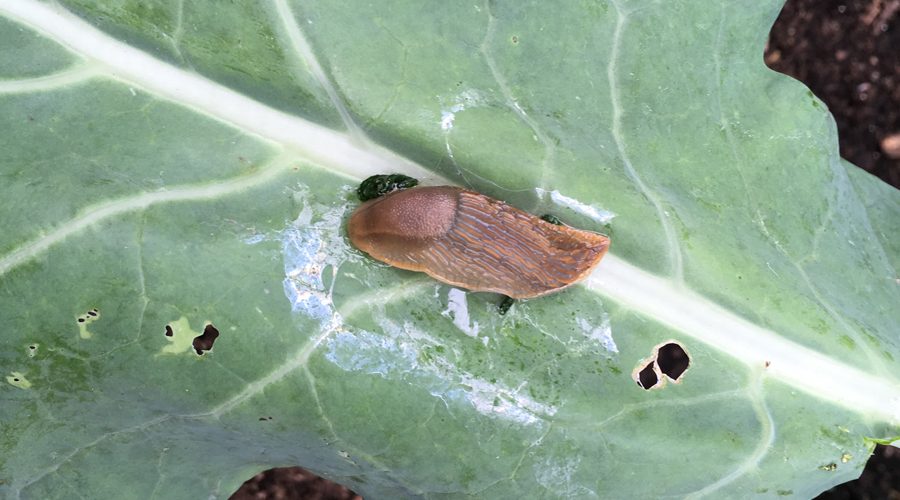It’s always the most common question… how do I get rid of slugs? This article covers a few methods of prevention and some good practices to use now that autumn is in full swing and slugs are more active!
- Remove hiding places
Honestly, this is the best thing you can do – the fewer places slugs have to hide, the better. That means keeping your plot as weed-free as possible, not leaving watering cans and empty pots lying around, picking up any old bits of wood or large stones and so on. - Set beer traps
Some cheap lager in a ramekin dish sunk into the soil among your veggies will do well to lure slugs away from your crops. It’s an easy and effective method of control. - Rake up fallen leaves
In autumn, all the leaves lying on the ground can provide a very slug-friendly habitat, so rake them up – better yet, pop them in a bucket, or an old compost bag pierced with holes to let them rot down into a leaf mould to use as a mulch next year. - If watering is necessary, do so in the mornings, not the evenings
You shouldn’t need to water very often at this time of year, but if you do, then do so in the mornings so that the surface of the soil can dry off a bit before night time when slugs come out. - Remove yellowing leaves of brassicas regularly
Again, these provide a great place for slugs to hide AND provides them with a source of food. Pull them off the plants before they fall and pop them in your compost pile. - Remove slugs from underneath pots regularly
It’s a classic hiding place – check every few days and get rid of any that you find. - Other things to try (should be available from your local garden centre):
- Wool pellets
These are quite effective, at least for a few weeks. Great if you have a smaller plot, but possibly a bit on the pricy side if you have a huge allotment! - Nematodes
You may need to go online for these. They are an organic control, with nematodes that kill off slugs. You will need to follow the instructions very precisely, but we find they can be quite an effective way of getting a bigger slug problem to a more manageable size. - Copper tape around pots
Effective for a patio garden, especially when used in conjunction with regular checks as per point 6! - Grit/eggshell barriers
Quite effective if you have just a few pots or a small plot, and if you lay down beer traps alongside them. - Strulch
This treated straw mulch is a good option for a larger plot of raised beds, although it is fairly costly. It’s not 100% effective, but definitely makes a big difference as well as protecting the soil from hail/snow/frost/weeds
- Wool pellets
- What about organic slug pellets?
We’d recommend doing your own research before you decide whether or not to use these. We prefer not to use them and would encourage you not to either…As the RSPB says, “Although ferric phosphate is less toxic than metaldehyde, the other ingredients in the tablets can also affect earthworms and, if consumed in large quantities, can poison pets.”

